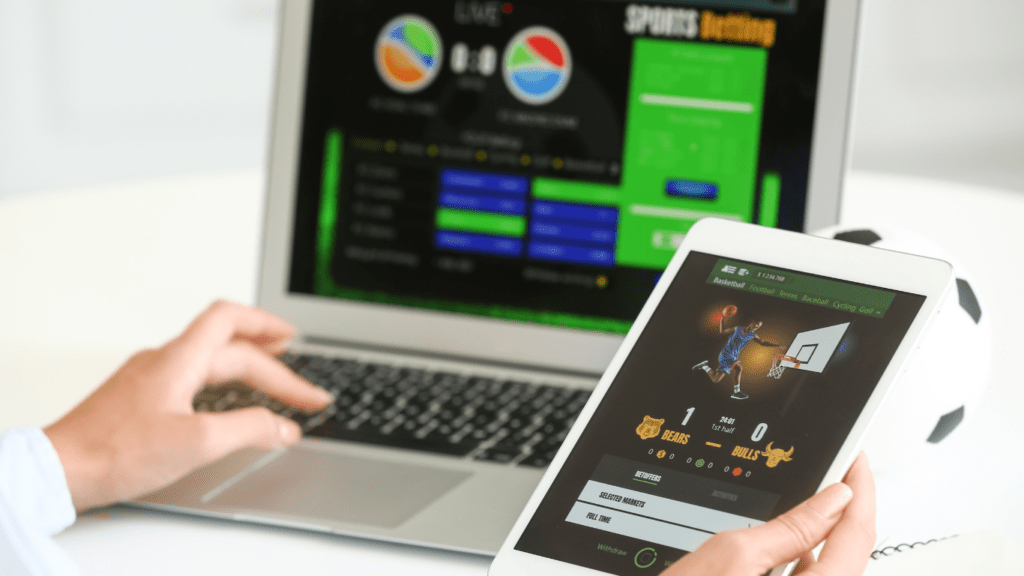Sports betting has always been about strategy, intuition, and a little bit of luck. But with the rise of artificial intelligence, the game is shifting in ways we never imagined. AI is transforming how bets are placed, analyzed, and even predicted, giving both casual bettors and seasoned professionals a powerful edge.
The Role Of AI In Sports Betting
AI transforms sports betting by leveraging data analytics, machine learning, and predictive algorithms. Its ability to analyze trends and enhance betting strategies reshapes how bettors approach their decisions.
Understanding AI In Sports Betting
AI in sports betting involves using advanced algorithms to process vast datasets, from player statistics to game conditions. These systems identify patterns in historical performance and real-time metrics, enabling more accurate odds predictions. For example, AI can analyze:
- team form
- weather effects
- injury reports simultaneously
unlike traditional methods. AI’s adaptability allows continuous improvement as more data becomes available.
Key Technologies Behind AI-Driven Betting
Key technologies powering AI-driven betting include machine learning, big data analytics, and natural language processing (NLP). Machine learning models, like regression analysis or neural networks, predict outcomes based on complex variables. Big data analytics processes massive volumes of sports data from various sources, ensuring deeper insights. NLP extracts valuable insights from sports news and updates by analyzing text-based information quickly and efficiently. These technologies work in tandem to refine odds calculations, enhancing betting accuracy.
Advantages Of Using AI In Sports Betting
AI brings significant benefits to sports betting by boosting accuracy, enhancing user experiences, and providing real-time data-driven insights. These improvements are reshaping how bettors interact with the industry.
Improved Accuracy And Predictions
AI increases prediction accuracy by analyzing vast datasets and identifying patterns humans might overlook. Through machine learning models, AI evaluates variables like team performance, player conditions, and historical outcomes to provide more precise betting odds. For example, AI can assess weather conditions’ influence on outdoor sports or a key player’s injury to adjust predictions effectively.
Enhanced User Experience
AI improves betting platforms by personalizing user experiences. AI-driven tools recommend tailored betting options based on individual preferences or betting history. Chatbots powered by natural language processing simplify navigation, answer queries instantly, and offer insights, making the platforms more user-friendly.
Real-Time Data Analysis And Insights
AI processes live data during events to deliver actionable insights instantly. For instance, real-time analysis tracks player statistics, momentum shifts, or game dynamics, updating odds on-the-fly. This capability enables in-play bettors to make more informed decisions, ensuring they capitalize on timely opportunities.
Challenges And Limitations Of AI In Sports Betting

AI has introduced revolutionary changes to sports betting, but it also faces notable challenges that impact its effectiveness. Addressing these limitations is critical to maximizing its potential in this evolving landscape.
Ethical Concerns And Risks
- AI-driven sports betting raises ethical issues, especially when accessibility and fairness come into question.
- Automated algorithms could create an uneven playing field by offering advantages to those with more resources or technical expertise, creating disparities among bettors.
- Some fear that AI could enable exploitation, such as using insider data or circumventing betting regulations.
- Transparency in AI models is limited, leaving users unsure about the fairness of predictions or the balancing of odds.
- Without clear oversight, these risks could undermine trust in the system.
Dependence On Data Quality
AI models rely heavily on the accuracy and comprehensiveness of data to make reliable predictions. Incomplete or inaccurate datasets, like outdated player statistics or missing game conditions, can lead to flawed outputs. Bias within data sources amplifies errors, causing skewed predictions. Additionally, real-time data updates are critical for in-play betting, and delays or inaccuracies in these inputs reduce AI’s effectiveness in dynamic scenarios. Reliable data infrastructure is essential but challenging to maintain across different sports and jurisdictions.
The Future Of AI In Sports Betting
AI in sports betting is evolving rapidly, driving innovation and transforming industry practices. Emerging trends show significant potential to reshape how bettors interact with platforms and make decisions.
Emerging Trends And Innovations
AI-powered personalization is revolutionizing user experiences. Platforms employ advanced algorithms to deliver real-time, tailored recommendations based on user preferences, betting history, and patterns. For example, bettors receive curated odds suggestions for ongoing events or custom notifications on specific teams or players.
Blockchain integration enhances transparency and fairness. AI combined with blockchain ensures secure transactions, unbiased distribution of payouts, and protection against fraud in betting systems. This alignment builds trust among users and promotes equitable participation.
Voice-activated technologies simplify interactions. AI-driven voice assistants allow users to place bets, track odds, or access insights hands-free. Features like natural language understanding make AI assistants accessible for users with varying comfort levels in technology.
Augmented reality (AR) and virtual experiences engage bettors with immersive environments. AI integrates AR elements to create dynamic interfaces, where users visualize live events, explore odds projections, and analyze data in real-time, enriching the betting experience.
Potential Industry Transformations
Traditional bookmakers are shifting towards predictive platforms. AI’s ability to analyze vast datasets results in dynamic odds adjustments based on game conditions, weather, or injuries, potentially minimizing reliance on manual odd-setting by bookmakers.
Smaller operators gain market competitiveness. AI reduces overhead costs by automating data analysis, streamlining odds creation, and enhancing marketing strategies. This automation allows emerging platforms to compete against established entities.
Accelerated adaptability changes betting patterns. AI can now process updates instantly during live games, enabling users to place in-play bets more strategically. Bettors leverage this adaptability to adjust their strategies dynamically and maximize gains during events.
Regulatory frameworks evolve to accommodate AI usage. As AI shapes betting methods, authorities adopt new policies that ensure fairness and mitigate risks. Transparent AI algorithms and ethical implementation practices become central to regulatory approaches.



 Alex Hobart is the founder of Gamble Time Hub, a cutting-edge platform dedicated to delivering up-to-date gambling news, in-depth sports betting insights, and compelling high-stakes gambling stories. With a sharp eye on the evolving landscape of betting, Alex created the hub to inform, engage, and empower both new and experienced gamblers. Committed to promoting smart and safe play, Alex also champions responsible gambling through practical tips and educational content, making Gamble Time Hub a trusted resource in the gambling community.
Alex Hobart is the founder of Gamble Time Hub, a cutting-edge platform dedicated to delivering up-to-date gambling news, in-depth sports betting insights, and compelling high-stakes gambling stories. With a sharp eye on the evolving landscape of betting, Alex created the hub to inform, engage, and empower both new and experienced gamblers. Committed to promoting smart and safe play, Alex also champions responsible gambling through practical tips and educational content, making Gamble Time Hub a trusted resource in the gambling community.

